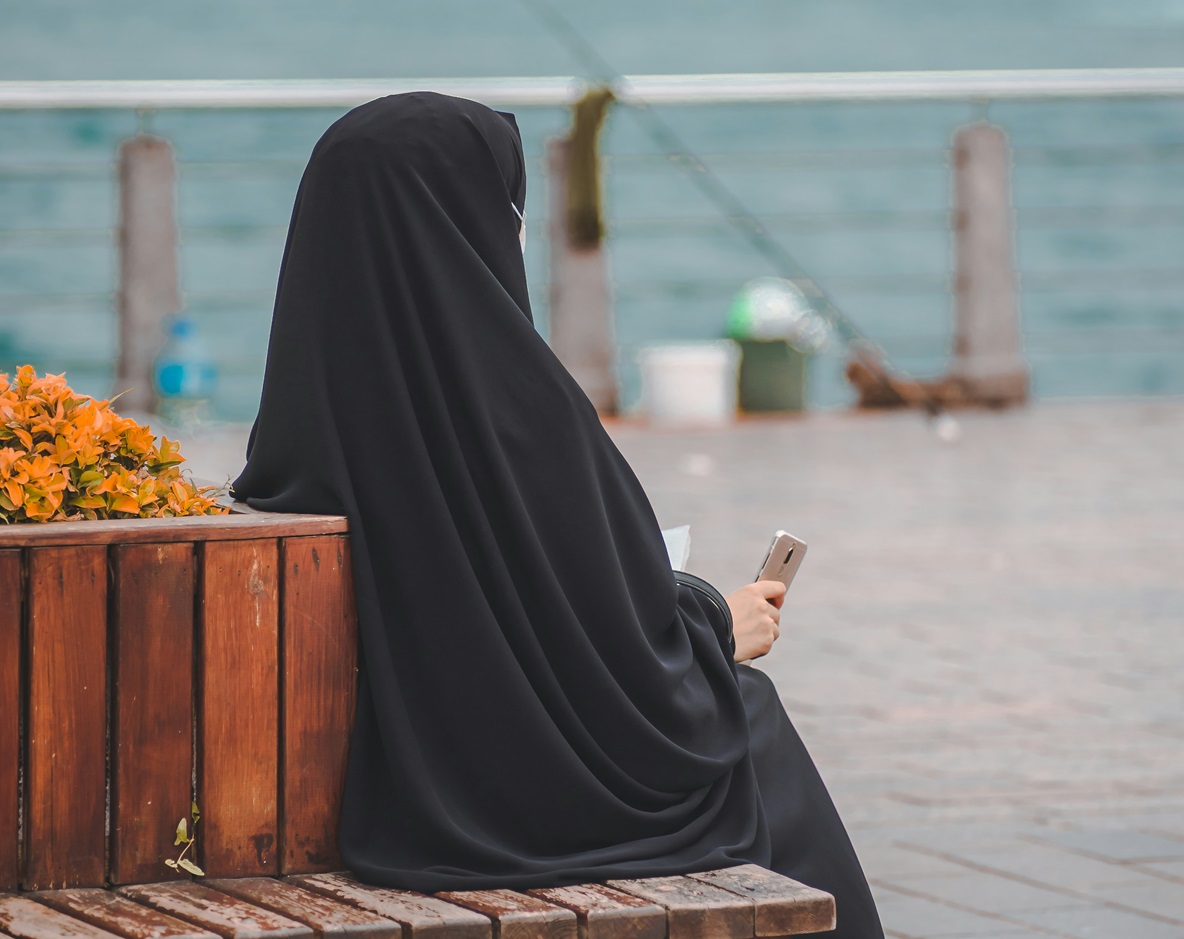Islamic veil sparks political debate in Kazakhstan
Fears of Islamic radicalisation have made it an increasingly hot-button issue for Astana. The culture minister is proposing a ban on the hijab and niqāb, and President Tokaev himself has described them as "an archaic form of clothing", sparking protests and flash-mobs on social networks. The constitution, which does not provide for such diviedi, was invoked.
Astana (AsiaNews) - For some time in Kazakhstan, as well as in Russia and other Central Asian countries, there has been an ongoing debate on whether religious clothing should be worn in public places.
The debate focuses on women's clothing, thehijab, himar, niqāb and other more local variants, and in the last year, after various terrorist attacks and fears of Islamic radicalisation, the issue is becoming increasingly hot, politically and socially, as well as religiously.
One of the most charismatic deputies of the Mažilis (Astana's parliament), the historical opponent Ermurat Bapi, has also spoken out on the need to control and limit women's clothing, in search of solutions to preserve peace and security, and help Kazakhstan to emerge from the sands of authoritarian regimes. The draft law under discussion, in his opinion, must seek a 'compromise between society and religion'.
It was the Minister of Culture and Information, Aida Balaeva, who proposed the ban on the hijab and niqāb in October 2023, sparking a wave of social protests, mainly through TikTok, by young women showing themselves in continuous flashmobs in the much reviled clothing.
This led President Kasym-Žomart Tokaev to propose a ban on TikTok, and in March this year he called the niqāb 'an archaic form of dress', which is imposed on Kazakh women by radical Muslim neophytes.
Bapi intervened to confirm that 'the problem is not the hijab, but the fact that destructive tendencies seriously damage Kazakhstan's national traditions... If we want to develop as a secular state, we must not be influenced by foreign political and religious ideologies, our future must remain in our own hands'.
The debate in parliament is confused between the various models of religious garments, which leave more or less visible inches of women's faces, as well as the cadra and paranja, comparing images and designs from various sources and situations.
The problem is that the Kazakh constitution contains no prohibitions or limitations on what citizens can wear, and jurist Maksim Mostovič recalled the various articles stating that 'everyone has the right to the intangibility of private, personal and family life, and to the defence of his or her honour and dignity' (Art. 18), or the right to 'use one's native language and culture, freely choosing the forms of communication, education, instruction and creativity' (Art. 19) as well as the right to 'freedom of conscience' (Art. 22). During the pandemic, recalls Mostovič, 'everyone went around with their faces covered by masks', and one cannot see the reason for a current ban, which would itself be 'radical and illogical'.
One would have to justify such a measure with 'the violation of the rights of third persons', the jurist insists, or prove that partially or almost completely covering one's face constitutes 'an attack on the constitutional order or social morality'. Many women wear such clothes under duress from their husbands, and even here official bans do not solve the problem: what is needed is a real 'domestic violence prophylaxis', creating centres for listening and shelter for the victims of such situations.
Some women justify their hijab not only by a more in-depth study of religious dictates, but also by a desire to feel more sheltered and more intimately serene, while MPs 'believe that all women in paranja or cadra are hiding a bomb', says Ajžan Auelbekova, a Muslim activist who often speaks in the local press. In her opinion, Ermurat Bapi 'speaks out of turn about religious clothing, about which she knows nothing'. She too agrees that the niqāb, which leaves only the slit of the eyes, 'can frighten people around', and in general, the rules of the Koran only suggest covering the outer forms of the body. The conclusion is that 'people who follow religious commandments must first observe the laws of those who govern us, and the authorities must be able to enforce these laws without offending people's religious feelings and freedom'.







.png)










